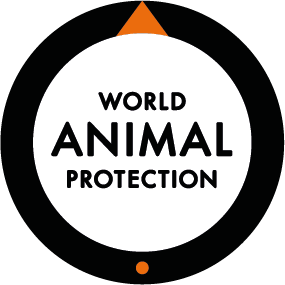Neonicotinoids
Neonicotinoids (neonics) are the most popular class of insecticides in the world. Despite abundant data showing that they play an outsized role in driving pollinator declines, they are still used widely in sensitive habitats.
These ultra-toxic insecticides are used to make every part of a plant deadly to insects like bees, just in case of a bug problem. Roughly 1.5 million pounds of neonics were used on corn and soy produced for animal feed alone in 2018, though this is likely a low estimate due to lack of available data.
Population Decline
At-risk and endangered species are experiencing population decline at a rapidly growing rate. The overuse of pesticides is a contributing factor for many reasons.
The need for neonics and other pesticides is fueled by the factory farming of animals for meat and dairy. The massive scale of animal production drives an extreme demand for just two crops, corn, and soy, a demand that continues to grow. To keep up with this demand, intensive crop agriculture overtakes native habitats that many species call home and relies on regular applications of chemical pesticides. This large-scale destruction and pollution lead to biodiversity loss and species decline.
Some of the animals imperiled by the use of neonics in agriculture are:
Why It Matters
The population decline of these species and the destruction of native habitats leads to loss in biodiversity. Biodiversity is the source of thriving ecosystems and the health of our planet. Our ecosystems provide us with clean air, fresh water, food, resources, and medicine. The unsustainable patterns of factory farming are a primary contributor to this loss and are now causing this rapid decline in populations at a rate thousands of times higher than ever before.
How Can You Help?
Let’s end cruel factory farming, its dependence on unsustainable animal feed, and the destructive forces it unleashes on communities, our climate, and wild animal habitats around the world. Through reducing the role of meat and dairy in our diets we can curb the growth of factory farming and reduce our collective and individual pesticide footprint.
Need help? Sign up for World Animal Protection’s Meating Halfway, a 21-Day Journey to Reduce Your Meat Consumption. You’ll get the support you need to eat less meat a few days a week or one plant-based meal per day.
--
Read the full report here.
